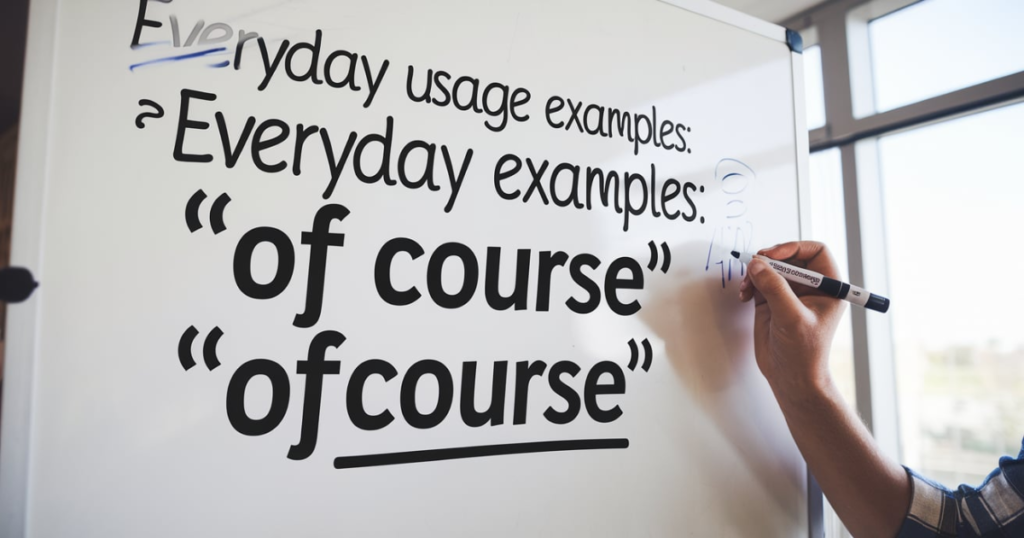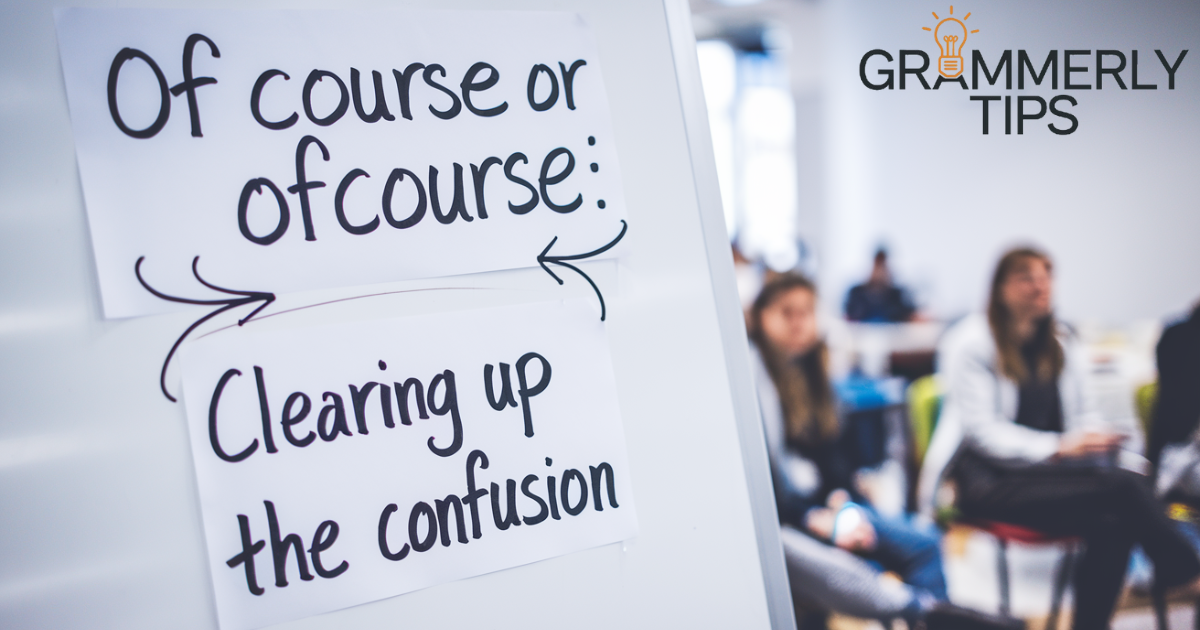When it comes to the phrase “of course or ofcourse,” many people are unsure about which one is correct. You may have seen both used in different contexts, but only one is grammatically accurate. This common mix-up often leaves people confused when writing.
The correct form is “of course,” a phrase used to express agreement, certainty, or something that is obvious. On the other hand, “ofcourse” is a spelling mistake. Let’s clear up this confusion and explain when and how to use “of course” properly.
Understanding “Of Course” And “Ofcourse”

Of Course: Definition and Usage
“Of course” is a phrase used to indicate agreement, obviousness, or to show that something is expected. It expresses certainty or affirms that something is naturally true or expected in a situation.
Examples of usage:
- Are you coming to the meeting?
Of course, I’ll be there. - Can I borrow your book?
Of course, take it anytime.
It is commonly used in both formal and casual conversations to reassure or emphasize a response. “Of course” can also imply politeness or willingness to help.
Ofcourse: Definition and Usage
“Ofcourse” is an incorrect spelling and is not recognized in formal writing or speech. It is often mistakenly used instead of the correct phrase, “of course.”
Despite being a common error, “ofcourse” should be avoided to maintain proper grammar. Always use “of course” to express certainty or agreement.
You Also Like To Read This: Of Course Or Off Course: Which One Should You Use?
Side-by-Side Comparison
| Correct Phrase | Incorrect Phrase |
| Of Course | Ofcourse |
| Meaning: Expresses agreement, certainty, or obviousness. | Meaning: Does not exist; a spelling error. |
| Example: “Of course, I’ll help you.” | Example: “Ofcourse, I’ll help you.” (incorrect) |
The phrase “of course” is the proper and grammatically accepted form, while “ofcourse” is a common mistake. To avoid errors, always separate the two words when expressing agreement or certainty. Proper usage ensures clarity and professionalism in writing.
Everyday Usage Examples

In daily conversations, “of course” is commonly used to confirm something or show willingness. You might hear it when someone is agreeing to a request or stating something obvious. For example, “Of course, I’ll help you with that” or “Of course, she knew the answer!”
Correct Examples:
- Of course, I’ll attend the meeting tomorrow.
- She said, ‘Of course, you can borrow my book.
- Of course, it’s going to rain today!
- Of course, they enjoyed the party.
Incorrect Examples:
- Ofcourse, I’ll attend the meeting tomorrow.
- She said, ‘Ofcourse, you can borrow my book.
- Ofcourse, it’s going to rain today!
- Ofcourse, they enjoyed the party.
FAQs
What is the difference between offcourse and of course?
“Offcourse” is incorrect and not a valid phrase, while “of course” is the proper expression used to show certainty or agreement.
How to use of course in a sentence?
You can use “of course” to agree or confirm something, like in the sentence, “Of course, I’ll join you for lunch.”
Is “of course” two separate words?
Yes, “of course” is always written as two separate words.
Is it polite to say of course?
Yes, “of course” is often used politely to affirm or reassure someone in conversation.
Conclusion
In conclusion, understanding the correct usage of “of course” is essential for effective communication. This phrase serves to express agreement, certainty, and reassurance in both casual and formal contexts. Conversely, “ofcourse” is an incorrect spelling that should be avoided to maintain grammatical accuracy.
By using “of course” appropriately, you enhance clarity in your conversations and writing. Remember, clear communication fosters better understanding and relationships.

Grammerlytips.com, authored by Jame, offers expert tips and insights on mastering grammar, enhancing writing skills, and boosting communication effectiveness.

